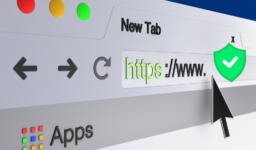
Are you an avid traveler who relies on Booking.com for all your accommodation needs? If so, it’s important to stay one step ahead of scammers who are looking to exploit unsuspecting users. In this guide, we’ll teach you how to spot and avoid Booking.com verification link scams, ensuring your personal and financial information stays secure.
Booking.com is one of the most popular online travel platforms, but its popularity also makes it a prime target for scammers. These fraudsters often send out phishing emails posing as Booking.com, complete with seemingly legitimate verification links. By clicking on these links, users unknowingly provide scammers with access to their personal information or fall victim to malware attacks.
To avoid falling into the trap, it’s crucial to familiarize yourself with the red flags that indicate a scam. From checking email addresses and website URLs to employing strong password practices, we’ll provide you with a comprehensive list of safety measures to keep in mind while navigating Booking.com.
Don’t let scammers ruin your travel plans. Stay informed and protect yourself against Booking.com verification link scams.
How do Booking.com verification link scams work
Booking.com is one of the most popular online travel platforms, but its popularity also makes it a prime target for scammers. These fraudsters often send out phishing emails posing as Booking.com, complete with seemingly legitimate verification links. By clicking on these links, users unknowingly provide scammers with access to their personal information or fall victim to malware attacks.
Scammers use various tactics to make their emails appear genuine. They may use Booking.com logos, similar email addresses, and even copy the formatting of legitimate emails. These phishing emails often claim that your account needs verification due to suspicious activity or for security reasons. They usually contain a link that directs you to a fake website that looks identical to the real Booking.com login page.
Once you enter your login credentials on the fake website, scammers can steal your username and password. They can then use this information to gain unauthorized access to your Booking.com account, potentially making fraudulent bookings or accessing your personal information.
Signs to look out for in Booking.com verification link scams
To avoid falling into the trap, it’s crucial to familiarize yourself with the red flags that indicate a scam. Here are some signs to look out for in Booking.com verification link scams:
- Suspicious email address: Pay close attention to the email address from which the email is sent. Scammers often use email addresses that closely resemble the official Booking.com domain but have minor variations. For example, instead of “noreply@booking.com,” they may use “noreply@bookng.com.” These subtle differences can be easy to miss, so be vigilant when checking the sender’s email address.
- Generic greetings: Legitimate Booking.com emails usually address you by name, as they have access to your account information. If an email begins with a generic greeting like “Dear Customer” or “Hello User,” it may be a sign of a scam.
- Poor grammar and spelling: Many phishing emails originate from non-native English speakers, resulting in noticeable errors in grammar and spelling. If an email contains multiple mistakes or awkwardly worded sentences, it could be a warning sign.
- Urgent or threatening language: Scammers often try to create a sense of urgency or fear to prompt users into taking immediate action. Be wary of emails that claim your account will be suspended or deleted if you don’t verify your information within a short timeframe.
- Unusual email content: Legitimate Booking.com emails typically contain information about upcoming reservations or relevant account details. If an email seems unrelated to your recent activity or contains unexpected requests for personal information, exercise caution.
Common tactics used in Booking.com verification link scams
Scammers employ various tactics to make their phishing emails appear legitimate. By understanding these tactics, you can better protect yourself from falling victim to Booking.com verification link scams. Here are some common techniques used by scammers:
- Spoofed email addresses: Scammers often use techniques to alter the display name in an email, making it appear as if the email is coming from Booking.com. However, the actual email address may be different. Always double-check the email address before clicking on any links or providing any information.
- Fake websites: Phishing emails often contain links that direct users to fake websites designed to look identical to the legitimate Booking.com website. These websites are created to trick users into entering their login credentials or personal information. Always verify the website’s URL before entering any sensitive information.
- Malware attachments: Some phishing emails may contain attachments that, when downloaded, install malware onto your device. These attachments may appear harmless, such as a PDF or Word document. Be cautious when downloading and opening attachments from unfamiliar or suspicious emails.
- Social engineering techniques: Scammers may use psychological manipulation to trick users into providing their information willingly. They may create a sense of urgency, fear, or curiosity to exploit human vulnerabilities. Be skeptical of emails that evoke strong emotions and think twice before taking any action.
How to spot a legitimate Booking.com verification email
Now that you’re familiar with the signs of a scam, it’s essential to know how to identify a legitimate Booking.com verification email. Here are some indicators that an email is genuine:
- Personalization: Legitimate Booking.com emails often address you by your name or username, as they have access to your account information. While scammers can sometimes include your name, always double-check for any generic greetings.
- Correct email address: Check that the email address matches the official Booking.com domain. Legitimate emails should come from an address ending in “@booking.com.” Be cautious of minor variations or misspellings in the email address.
- No urgent or threatening language: Booking.com will never threaten to suspend your account or delete your bookings unless you verify your information immediately. Legitimate emails from Booking.com will provide clear instructions without pressuring you to take immediate action.
- Review the content: Legitimate Booking.com emails will often contain information specific to your recent bookings or account activity. If the email appears unrelated to your recent interactions with the platform, it may be a scam.
Steps to take if you have fallen victim to a Booking.com verification link scam
If you suspect that you have fallen victim to a Booking.com verification link scam, it’s crucial to act quickly to minimize any potential damage. Here are the steps you should take:
- Change your passwords: Start by changing your password for your Booking.com account immediately. Choose a strong, unique password that includes a combination of uppercase and lowercase letters, numbers, and special characters. Avoid using easily guessable information, such as your name or birthdate.
- Contact Booking.com: Reach out to Booking.com’s customer support as soon as possible to inform them about the scam. They can guide you on additional steps to secure your account and prevent any unauthorized access.
- Monitor your accounts: Keep a close eye on your financial accounts, credit cards, and other online platforms linked to your Booking.com account. Look for any suspicious activity or unauthorized transactions. If you notice anything unusual, report it to your bank or the appropriate authorities immediately.
- Scan your device for malware: Run a thorough scan of your device using reputable antivirus software to detect and remove any potential malware that may have been installed through the scam email.
Tips to avoid falling prey to Booking.com verification link scams
Prevention is always better than cure. To avoid falling prey to Booking.com verification link scams, follow these tips:
- Verify email authenticity: Before clicking on any links or providing personal information, carefully examine the email for signs of a scam. Check the sender’s email address, grammar and spelling, and the relevance of the email content. When in doubt, contact Booking.com directly to confirm the legitimacy of the email.
- Be cautious of unexpected emails: If you receive an email from Booking.com that you weren’t expecting or that seems suspicious, err on the side of caution. Avoid clicking on any links or downloading attachments until you can verify the email’s authenticity.
- Type in the website URL: Instead of clicking on links provided in emails, manually type in the official Booking.com website address in your browser. This ensures you’re accessing the legitimate website and not a phishing site.
- Enable two-factor authentication: Take advantage of Booking.com’s two-factor authentication feature. This adds an extra layer of security by requiring a verification code in addition to your password when accessing your account.
- Keep your software up to date: Regularly update your operating system, web browser, and antivirus software to protect against known security vulnerabilities. These updates often include patches that address potential security risks.
Reporting Booking.com verification link scams
If you come across a Booking.com verification link scam or suspect fraudulent activity, it’s crucial to report it. By reporting scams, you can help protect other users from falling victim to similar schemes. Here’s how you can report a Booking.com verification link scam:
- Forward the email: If you receive a suspicious email, forward it to Booking.com’s official support email address. Include any relevant details or screenshots that can assist them in investigating the scam.
- Contact customer support: Reach out to Booking.com’s customer support through their official website or phone number to report the scam. They can guide you on further actions and provide additional information on how to protect yourself.
- Report to anti-phishing organizations: There are various organizations dedicated to combating phishing and online scams. You can report the scam to organizations such as the Anti-Phishing Working Group (APWG) or the Internet Crime Complaint Center (IC3). You can also report scams on verify scams report scams platform, which will help to share the more information about the scam with other users.
Other common online scams to be aware of
While Booking.com verification link scams are a significant concern for travelers, it’s important to stay vigilant against other online scams as well. Here are a few common online scams to be aware of:
- Phishing emails: Phishing emails are not limited to Booking.com; scammers often target other popular platforms and services. Always be cautious when providing personal information or clicking on links in emails, regardless of the sender.
- Fake booking websites: Scammers may create fake booking websites that appear similar to legitimate platforms. These websites often offer unrealistically low prices to lure users into making bookings and providing their payment information. Before making any bookings, verify the website’s authenticity and read reviews from other users.
- Fake customer support: Scammers may pose as customer support representatives, often through online chat or email. They may offer assistance with bookings or account-related issues but are actually trying to obtain your personal or financial information. Be cautious and only contact customer support through official channels.
- Wi-Fi network scams: When traveling, be wary of unsecured Wi-Fi networks in public places. Scammers can set up fake Wi-Fi networks to intercept your internet traffic and potentially gain access to sensitive information. Avoid accessing sensitive accounts or providing personal information when connected to unsecured networks.
Conclusion: Staying vigilant in the face of online scams
Scammers are becoming increasingly sophisticated in their attempts to deceive users, making it crucial to stay one step ahead. By familiarizing yourself with the signs of Booking.com verification link scams and following the tips outlined in this guide, you can protect yourself from falling victim to these scams.
Remember to verify email authenticity, be cautious of unexpected emails, and never provide personal information unless you are certain about the sender’s legitimacy. By staying vigilant and taking proactive measures, you can enjoy the convenience of Booking.com while keeping your personal and financial information secure. Happy travels!






